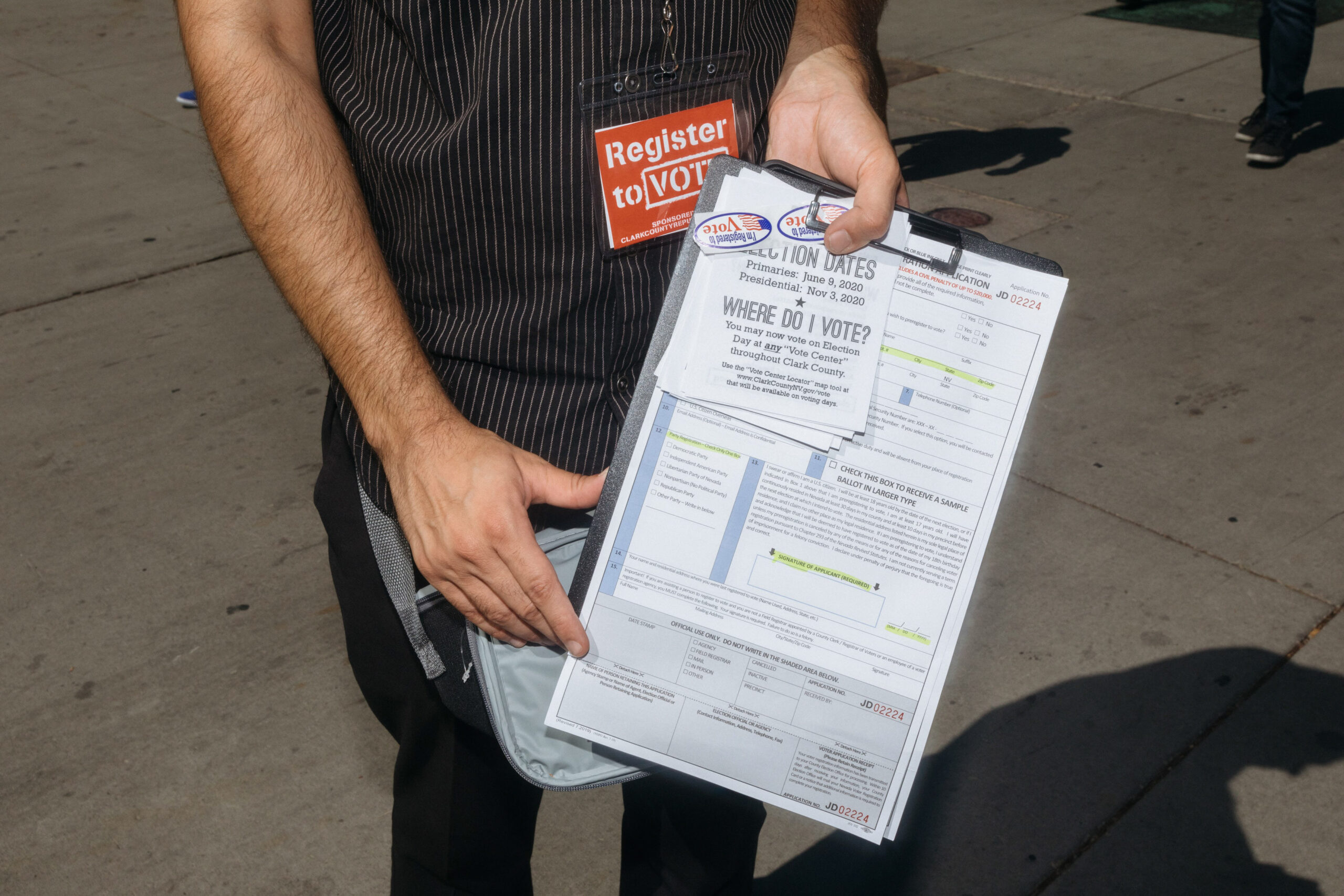In the past two months, a conservative law firm focused on election integrity has filed two lawsuits in Nevada alleging commercial addresses have been included illegally on voters’ registrations.
The Public Interest Legal Foundation based in Alexandria, Virginia, filed suit in Clark and Washoe counties, seeking to force county election officials to investigate allegations that some voters had listed commercial addresses as their residential addresses. In both cases, the plaintiff is Fred Kraus, a former Venetian executive who was a plaintiff in former President Donald Trump campaign’s failed effort in 2020 to amend Clark County’s mail ballot counting system.
Including a commercial address in a voter’s registration does not automatically indicate fraud, and the state has a process for investigating reports of registration fraud.
See below for more information.
What addresses are included on a voter’s registration?
When registering to vote, a person must designate a residential address, which must be where they reside, Nevada law stipulates. These addresses are necessary to determine a person’s election precinct and, in turn, their Congressional and legislative districts.
This residential address cannot be a business address or P.O. Box. If a person’s residence is not a street address, then a description of their residence’s location must be provided alongside their registration. For example, people who are unhoused can list the four street corners where they typically are located.
People also do not lose their Nevada residence if they are in the military, a student or are incarcerated.
Voters may also include another address as their mailing address, which is where mail ballots would be sent. This address can be a P.O Box, business location or out-of-state address, such as a person’s college residence.
Can voters live at a business address?
Yes. There are situations in which a person may live at a commercial address, such as a homeless shelter, their own personal business or a religious convent.
What is the process for investigating fraud related to voter addresses?
Nevada law outlines a process for investigating fraud related to voter registration, which can be submitted to the secretary of state’s office. After receiving a report of a fraudulent voter registration, a county clerk will meet with the district attorney, who will make a determination if there is probable cause to believe a voter’s identity or residence may be fraudulent.
If probable cause is established, the county clerk will mail a notice — with a return receipt requested — to the voter that outlines the grounds for canceling the registration. If the county clerk does not receive sufficient proof of a person’s identity and residence within 15 days after receiving the return receipt, the voter’s registration will be canceled.
However, if there is not enough time to follow that process before an election, the county clerk will issue “an affidavit of cancellation” that is attached to the voter’s identity in a voting roster. If the voter attempts to vote, they will only be allowed to do so if they provide photo identification and sufficient proof of residency at their listed residential address.
In addition, if there is probable cause to believe a person’s residence may be fraudulent, and the person attempts to vote by mail, the person’s ballot must be kept separate from other ballots. It will not be counted unless the voter provides sufficient proof of residence and identity to the county clerk before mail ballots are counted on Election Day.
An official with the secretary of state’s office said the vast majority of election fraud complaints are found to be unsubstantiated.
Reporter Tabitha Mueller contributed to this story.

